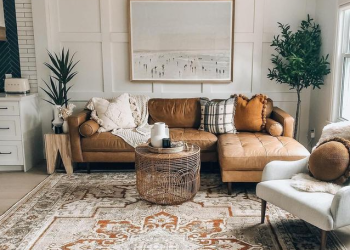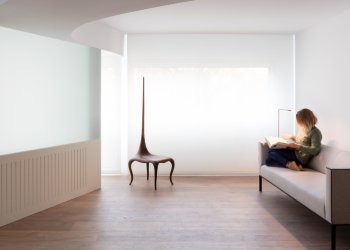Introduction to Bedroom Wellness
In today’s fast-paced world, prioritizing wellness is essential for maintaining overall health and well-being. As we spend a significant portion of our lives asleep, creating a healthy sleep environment is crucial for promoting optimal wellness. Bedroom wellness encompasses various practices and habits aimed at optimizing sleep quality and creating a nurturing sleep space.
Optimizing Sleep Quality
Quality sleep is vital for physical, mental, and emotional health. Factors such as stress, lifestyle habits, and environmental factors can impact sleep quality and duration. By prioritizing healthy sleep habits and creating a conducive sleep environment, you can improve the quality of your rest and wake up feeling refreshed and rejuvenated.
Creating a Calming Atmosphere
A calming atmosphere is essential for promoting relaxation and restful sleep. Minimize noise and light pollution in your bedroom by using blackout curtains, white noise machines, or earplugs. Creating a serene sleep environment can help reduce stress levels and promote better sleep quality.
Promoting Relaxation and Stress Reduction
Incorporating relaxation techniques into your bedtime routine can help signal to your body that it’s time to wind down and prepare for sleep. Practice deep breathing exercises, progressive muscle relaxation, or gentle stretching to promote relaxation and reduce stress before bedtime.
Ergonomic Bedroom Design
Ergonomic furniture and bedroom layout are essential for promoting comfort and relaxation. Choose a comfortable mattress and pillows that support your body’s natural alignment. Arrange furniture in a way that maximizes space and promotes ease of movement.
Incorporating Exercise and Movement
Regular exercise is essential for overall health and can positively impact sleep quality. Aim for at least 30 minutes of moderate exercise most days of the week, but avoid vigorous activity close to bedtime, as it may interfere with sleep.
Mindfulness and Meditation Practices
Practicing mindfulness and meditation can help calm the mind and promote relaxation before bedtime. Take a few minutes each night to practice mindfulness techniques such as deep breathing or guided meditation to quiet the mind and prepare for sleep.
Healthy Sleep Hygiene Habits
Establishing consistent sleep patterns and bedtime routines can help regulate your body’s internal clock and improve sleep quality. Create a bedtime routine that includes relaxing activities such as reading, taking a warm bath, or listening to soothing music to signal to your body that it’s time to sleep.
Nutrition and Sleep
Diet plays a significant role in sleep quality and overall wellness. Avoid heavy meals, caffeine, and alcohol close to bedtime, as they can interfere with sleep. Instead, opt for sleep-promoting foods such as complex carbohydrates, lean proteins, and foods rich in magnesium and melatonin.
Limiting Screen Time
Electronic devices emit blue light, which can disrupt your body’s natural sleep-wake cycle. Limit screen time before bedtime and avoid using electronic devices in bed. Instead, opt for relaxing activities such as reading a book or listening to calming music to promote better sleep.
Natural Remedies and Supplements
Natural remedies such as herbal teas, melatonin supplements, or magnesium supplements may help promote relaxation and improve sleep quality. Consult with a healthcare professional before incorporating supplements into your bedtime routine.
Temperature and Humidity Control
Maintaining optimal temperature and humidity levels in your bedroom is essential for promoting comfort and restful sleep. Keep your bedroom cool and well-ventilated, and consider using a humidifier or dehumidifier to regulate humidity levels.
Creating a Tech-Free Zone
Create a tech-free zone in your bedroom to minimize distractions and promote relaxation before bedtime. Keep electronic devices out of the bedroom or set strict limits on their use before bedtime to create a peaceful sleep environment.
Aromatherapy and Sleep
Aromatherapy can help promote relaxation and improve sleep quality. Experiment with essential oils such as lavender, chamomile, or bergamot, which are known for their calming and sleep-inducing properties. Diffuse essential oils or use them topically before bedtime to promote relaxation and restful sleep.
Conclusion
Incorporating healthy habits and routines into your sleep space is essential for promoting overall wellness and optimizing sleep quality. By prioritizing relaxation, creating a conducive sleep environment, and establishing healthy sleep habits, you can improve the quality of your rest and wake up feeling refreshed and rejuvenated.

FAQs After The Conclusion
1. Can certain foods help me sleep better?
Yes, foods rich in magnesium, melatonin, and tryptophan, such as nuts, seeds, dairy, and leafy greens, can promote relaxation and improve sleep quality.
2. How can I create a bedtime routine that works for me?
Experiment with different relaxing activities such as reading, taking a warm bath, or practicing mindfulness to find a bedtime routine that helps you unwind and prepare for sleep.
3. Are there any natural remedies for insomnia?
Herbal teas, relaxation techniques, and supplements like melatonin or magnesium may help alleviate insomnia symptoms. Consult with a healthcare professional before trying new remedies.
4. What should I do if I wake up frequently during the night?
Practice relaxation techniques such as deep breathing or progressive muscle relaxation to help you fall back asleep. If sleep disturbances persist, consult with a healthcare professional.
5. How can I reduce stress and anxiety before bedtime?
Incorporate stress-reducing activities such as meditation, yoga, or journaling into your bedtime routine to help calm the mind and promote relaxation.
6. Is it okay to exercise close to bedtime?
Avoid vigorous exercise within a few hours of bedtime, as it can interfere with your ability to fall asleep. Instead, opt for gentle activities such as stretching or yoga.
7. What role does lighting play in sleep quality?
Lighting can affect your body’s natural sleep-wake cycle. Minimize exposure to bright lights before bedtime and use dim lighting in the evening to signal to your body that it’s time to wind down.
8. How can I create a more comfortable sleep environment?
Invest in a comfortable mattress and pillows, keep your bedroom cool and well-ventilated, and minimize noise and light pollution to create a conducive sleep environment.


















